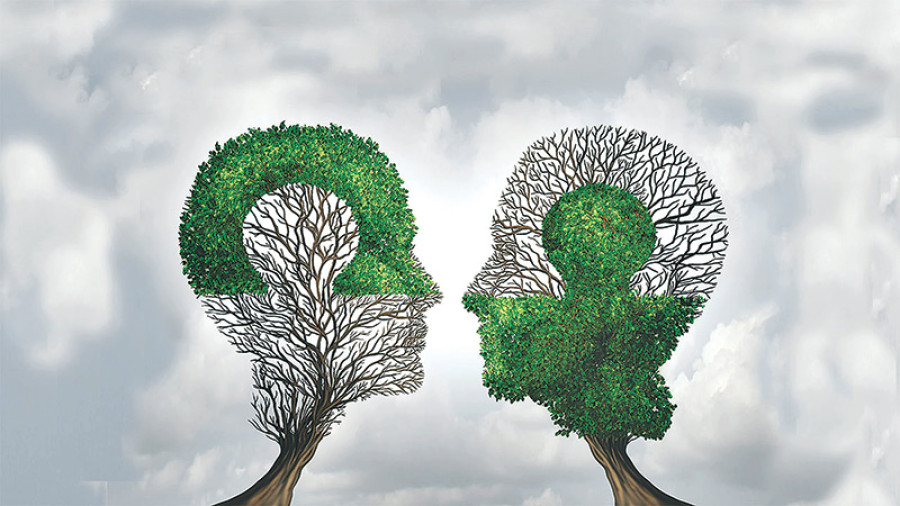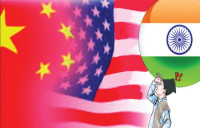Opinion
Reshaping the landscape
Chief Minister of Province 2, Lalbabu Raut recently wrote a letter to Prime Minster K P Oli seeking cooperation from the provincial bureaucracy.
Asmita Verma
Chief Minister of Province 2, Lalbabu Raut recently wrote a letter to Prime Minster K P Oli seeking cooperation from the provincial bureaucracy. He wrote this out of frustration because the chief secretary of the province would not cooperate with him. This is one example of a lack of clear guidelines for the smooth functioning of local governments. This demands that the bureaucratic structure should be non-political and non-partisan for the public administration to deliver to citizens.
As Nepal has adopted federalism, the answer for the country’s bureaucratic overhaul lies in allowing it a fair amount of autonomy. Isolating the bureaucracy and preventing it from turning into a puppet of the politicians should be a primary goal at this time of political and administrative restructuring. There is evidence that an apolitical bureaucracy places meritocracy above nepotism in government; this consequently leads to high levels of economic growth. The de-politicised bureaucracy of countries like Singapore and Hong Kong experienced greater economic development than countries like Argentina, Spain and Peru where politicians would appoint secretaries, ambassadors and other top-tier bureaucrats.
In Nepal, frequent government changes also effect the reshuffling of the bureaucracy according to the whims of the new government. Every eight or ten months, new secretaries for ministries are appointed, new ambassadors, new vice chairpersons of the planning commission are appointed, and our leaders make their bids for the top positions in government. It is the frequent change in the bureaucracy, not political instability alone, that hurts Nepal the most. While other nations also experience political volatility, their bureaucracy remains stable, avoiding the constant political face-lift.
Politico-administrative relationship
Good politics give good governance. The general public expect good governance. Bureaucracy in our part of the world is known more for creating hurdles than for facilitating service seekers. After all, the tax payers should not feel distanced or alienated from having access to services that they are the rightful benefactors of. The entire machinery of the government is responsible for good governance, and it should not be limited to administrative reforms only. Before the advent of democracy, the bureaucracy in Nepal was limited to monarchs and the elite who were recognised by the monarchy. But Nepal’s public service could not remain isolated from the development in democracies all over the world. Thus, its public service commission (PSC) had to adhere to modern constitutional values that Nepal adopted. Therefore, people’s participation also became the basis for the PSC for recruiting new entrants into the bureaucracy.
Political will and commitment are the first steps towards bringing about bureaucratic reforms and placing the right person in the right place. Unlike politicians, bureaucrats are permanent organs of the government system. In their long careers, they work under an array of different administrations with varying political ideologies. It is therefore crucial that bureaucrats be politically neutral. A multitude of politicians may come and go, but a weak and politicised bureaucracy may debilitate Nepal in the long haul. A politically impartial bureaucracy can offer stability in Nepal.
Bureaucratic responsiveness
Bureaucracy forms a bridge between the state and citizens. Therefore, the bureaucracy has to be of an optimum size for responsiveness. There must be inclusive recruitment from the public so that they can be insulated against political pressure. While Nepal has achieved this inclusiveness to a large extent, the politicisation of the bureaucracy has resulted in incompetence. However, the mutual appreciation of roles and responsibility of the elected representatives and bureaucrats will prevent them from overstepping. This will also enable them to recognise and respect each other’s rights.
The separation of politics and the bureaucracy will play a key role in mitigating corruption. In Nepal, the public offices have become a great source of income for political parties. Corruption has manifested in several ways. Politicians accept dividends in return for appointing bureaucrats in top, lucrative positions. Thus, the bureaucracy here is a mixture of traditional and modern features, with the traditional forces comparatively stronger than the modern ones. Moreover, party-wise trade unions have put the bureaucracy in a light that is not so favourable. The election of the civil service trade union affiliated to different political parties has pushed back our bureaucracy yet again. Civil service, to a great extent, is not result oriented, it is power and position oriented. The lengthy decision making procedure, sluggish implementation and inefficient service delivery system shows that Nepal’s bureaucracy is one of the weakest and non performing systems in the world.
One way to bring about a change to make the bureaucracy more responsive is to install a mechanism of proper reward and punishment. A transparent system of evaluation is not just to encourage the bureaucracy, it is a vital part of democracy in today’s world. Good work must be rewarded and impunity of any sort will only prove problematic for democratic norms. The political class, as the representative of the people, should also facilitate public servants to increase accountability. The problem is that the nexus between the bureaucracy and the politicians have become synonymous to impunity and corruption in Nepal. It is a challenge for both the bureaucratic and political structures to transform themselves for the service of the people and change the prevailing perception.
Democratic re-vitalisation
Nepal’s bureaucracy has adapted to democratic norms since the advent of democracy in the 1990s and accordingly followed the inclusive recruitment policy outlined in the constitution. Following the revolution in 2006 and the introduction of republicanism in 2008, the bureaucracy has become more inclusive as per the norms adopted in the interim constitution. However, it is still puritanical and its conduct is highly conservative and traditional.
After the adoption of the new constitution in 2015 and the election of three tiers of government, the bureaucracy now has the opportunity to re-vitalise itself. There’s a bureaucratic overhaul from the federal level, and provinces are also authorised to appoint their own employees. A new bureaucratic order can help the new political order by internalising the transformation that the nation is going through.
Both bureaucrats and elected representative are accountable to the people. During their time in office they need to discharge their duties in full faith by keeping the interest of the service seekers in the forefront.
Verma is completing a Masters in International Relations from Amity University, New Delhi




 14.07°C Kathmandu
14.07°C Kathmandu










